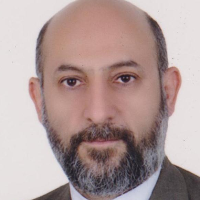Investigating the Basic Human Need for Acceptance from the Perspective of the Qur'an and Schematic Theory
Acceptance is a universal need and encompasses the scope of human life; any damage to this need creates inconsistent schemas and meeting this need increases the feeling of receiving love, support, and meaningfulness. The purpose of this study is to identify the concept and structure of acceptance in the Qur'an and to compare it with schema theory. For this purpose, the data were analyzed and coded by inductive content analysis. The findings showed that acceptance in Islam is taken from the description and recommendation of mercy, love, forgiveness and hope and is the first step to establish a mutual relationship. Acceptance is kindness, and positive attention to someone who has been approached or contacted and has no hostile behavior or intent. This research showed that there are five levels of acceptance in the Qur'an: 1- Children 2- Couples towards each other 3- Acceptance in the Islamic society (unless in the intention or act of hostility of the other party) 4- Prophet and leaders Islamic society towards any non-enemy 5- Acceptance and kindness of God (includes everyone, especially those who are more submissive). As a result, based on Islamic sources, human beings receive their need for acceptance from different sources, and after emotional development, they help promote this need in others. In Yang's schematic theory, however, the main source of acceptance is the family and the expressed treatment is limited.
acceptance , need , mercy , Quran , schema
-
Intra-familial Boundaries from the Viewpoint of Psychology and the Holy Quran
Jafar Houshyari, Mohammadmehdi Safurayi Parizi *, Seyed Hamid Jazayeri, Hassan Taghian
Journal of Al-Mustafa International University, Spring and Summer 2023 -
A Description of Comforting and Disrupting Factors in the Family as per the Quran
Salman Nemati*, Masoud Jan Bozorgi, Mohammad Mehdi Safurayi Parizi
Journal of Al-Mustafa International University, Spring and Summer 2023 -
Survey of the human need to acceptance in Quran by Structural Semantics
Mohammadmahdi Saforaie, Alireza Qaeminia
Journal of Educational Doctrines in Quran and Hadith, -
Creativity models in psychology and the presentation of a model of creativity based on Islamic resources
Jafar Aligolifirouzjahi*
Journal of Fundamental Researches on Humanities,



